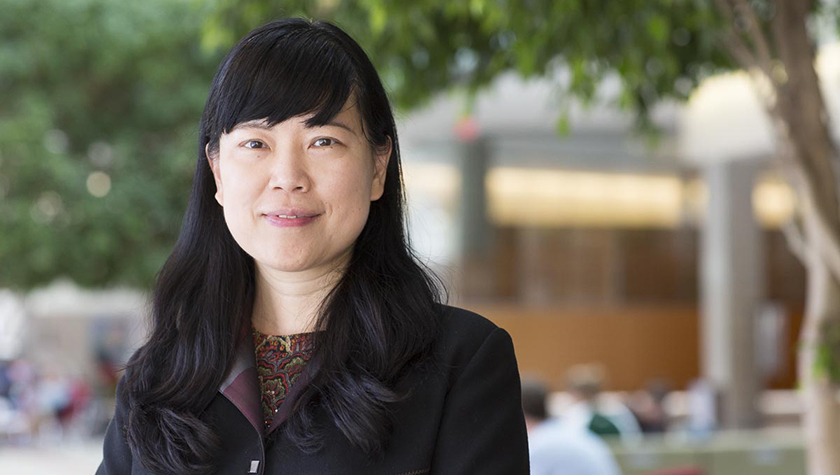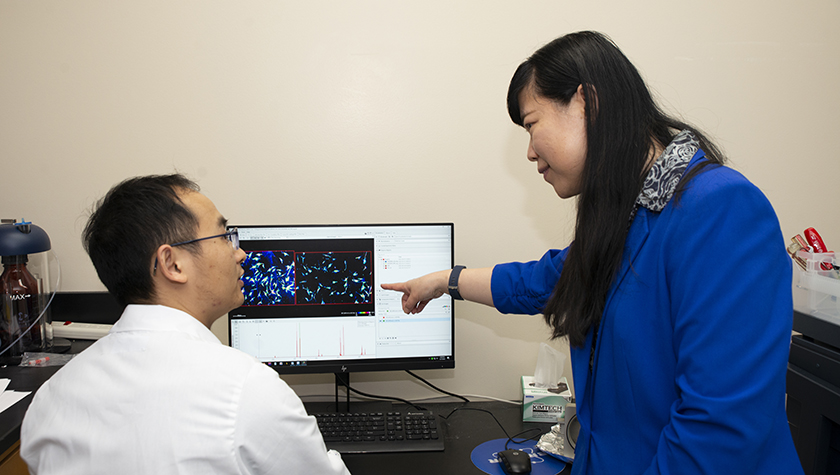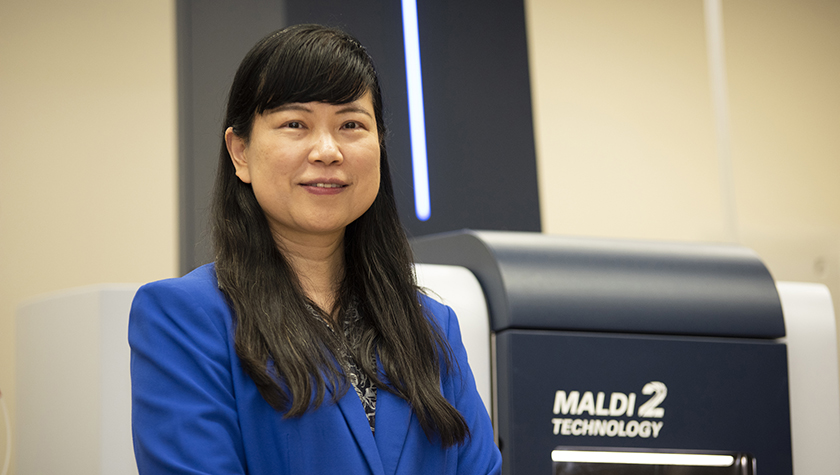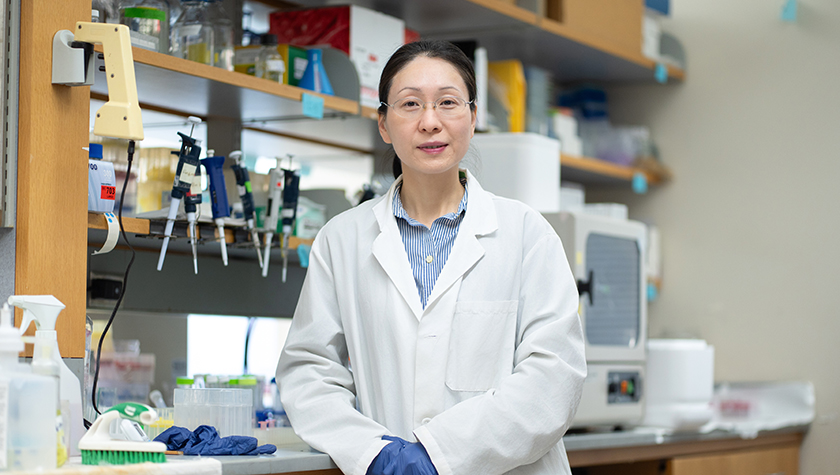
Professor Lingjun Li is the first in the School of Pharmacy to win UW–Madison’s Kellett Mid-Career Award
By Nicole Etter
Professor Lingjun Li, the Charles Melbourne Johnson Distinguished Chair in Pharmaceutical Sciences and the Vilas Distinguished Achievement Professor of Pharmaceutical Sciences and Chemistry, is one of 11 University of Wisconsin–Madison faculty selected for the 2025-26 Kellett Mid-Career Award. Li is the first from the School of Pharmacy to win this prestigious honor in the award’s nearly 20-year history.
“I am deeply honored,” she says. “This award is not just for me; it’s for all the current and past members of my lab because their collective contributions really brought us to this stage.”
The award is named for the late William R. Kellett, a former president of the Wisconsin Alumni Research Foundation’s board of trustees, and is designated for UW faculty who are seven to 20 years past achieving tenure.

“This is a critical juncture in a faculty member’s career,” Li explains. “It’s a time when many begin to explore new research interests and directions beyond the early-career phase.”
The recognition comes a decade after Li was selected for the Vilas Distinguished Achievement Professorship, another top faculty honor on campus. The Kellett Mid-Career Award recognizes recipients primarily for their research accomplishments, though teaching and service are also considered. The rigorous nomination process includes endorsements and recommendations from both on-campus colleagues and external experts in the field, who can weigh in on the significance and impact of the nominee’s research contributions.
“This reflects the recognition of our research in the broader academic community,” Li notes.
The award provides $75,000 of flexible funding over five years, enabling recipients to pursue innovative and exploratory research.
“It allows us to take on more high risk, high reward research projects,” she says. “We can explore early-stage ideas or carry out some pilot studies, and also develop new collaborations that could lead to federal funding.”
One area Li is eager to expand is single-cell analysis using imaging mass spectrometry, transcriptomics (which examines RNA transcripts to study gene expression), and other complementary methods.

“Our lab specializes in developing analytical tools and mass spectrometry-based technologies,” she says. “But there are always challenges in terms of sensitivity, the limited chemical information from small samples, and spatial aspect, like how cells are arranged and interact. That’s why we have been very interested in further expanding our work to do more spatially resolved multiomics and single-cell analysis to further push the technology boundaries and overcome these limitations.”
Single-cell analysis could help scientists better understand many topics, and it has the potential to illuminate a wide range of biological phenomena — from tumor microheterogeneity to how neighboring neurons communicate using different chemical messengers.
“Being able to understand that kind of spatial contact or anatomical context at the single cell level has long been a dream for biologists,” she says.
The research progress Li has already made over her career would not be possible without federal grants as well as internal support from UW–Madison, she notes. She sees this Kellett Award-funded work as a springboard for future federal grant applications.
Li currently has three active grants from the National Institutes of Health and another from the National Science Foundation. Over the years, she has also secured three federal grants that funded shared instrumentation to support biomedical research on campus.
“We have a very strong and vibrant research program and a very supportive environment in the School of Pharmacy.”
–Lingjun Li
“Federal funding is super critical to advancing our mission to improve human health,” she says. “It not only supports our science and daily research activity, but it also supports the training of the next generation of scientists and creates opportunities for them to pursue research as a professional career.”
While Li is the first faculty member from the School of Pharmacy to receive the Kellett Mid-Career Award, she hopes her colleagues in Pharmacy are recognized in future years.
“We have a very strong and vibrant research program and a very supportive environment in the School of Pharmacy,” she says. “Many of my colleagues are outstanding researchers and brilliant scientists who are highly deserving of this kind of recognition.”
